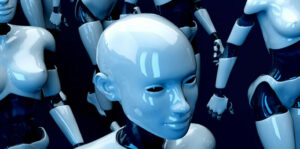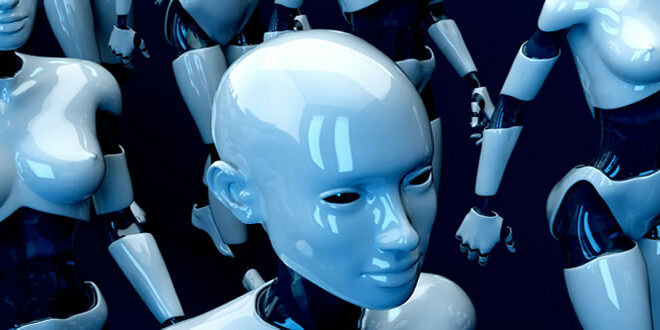Artificial intelligence AI is advancing at an unprecedented pace, raising concerns about whether machines will render human workers obsolete. With AI already automating tasks, generating content, and even assisting in scientific research, many wonder: Will AI replace humans by 2030?
The short answer is no—AI won’t fully replace humans in the next six years. However, it will drastically reshape industries, redefine jobs, and force society to adapt. Here’s a deeper look at why AI is more of a collaborator than a replacement.
1. AI Lacks True Human Intelligence
While AI can outperform humans in specific tasks (e.g., data analysis, image recognition, or language processing), it lacks general intelligence—the ability to think, reason, and adapt like a human.
No Consciousness or Creativity: AI can mimic creativity but doesn’t “understand” art, emotions, or abstract concepts like humans do.
Limited Common Sense: AI struggles with real-world unpredictability, making human oversight essential.
Dependence on Data: AI can’t operate beyond its training data, while humans learn from minimal input and intuition.
By 2030, AI will still be a tool, not an independent replacement for human cognition.
2. AI Will Augment, Not Replace, Most Jobs
History shows that technology transforms jobs rather than eliminating them.
Automation of Repetitive Tasks: AI will handle routine work (e.g., customer service chatbots, manufacturing robots), freeing humans for complex decision-making.
New Jobs Will Emerge: Just as the internet created roles like “social media manager,” AI will generate jobs we can’t yet imagine.
Human-AI Collaboration: Doctors will use AI for diagnostics, lawyers for case research, and writers for drafting—but human judgment remains crucial.
A 2023 World Economic Forum report predicts that AI may displace 85 million jobs by 2025 and create 97 million new roles.
3. Some Jobs Are Safe (For Now)
Certain skills remain uniquely human and difficult to automate:
Empathy & Emotional Intelligence: Therapists, nurses, teachers, and leaders rely on emotional connection.
Creativity & Innovation: While AI can assist, true originality in art, science, and entrepreneurship comes from humans.
Complex Problem-Solving: Jobs requiring adaptability (e.g., crisis management, strategy) still need human intuition.
4. Ethical and Societal Barriers Prevent Full Takeover
Even if AI could replace humans, society isn’t ready for it:
Regulation & Control: Governments are already imposing AI laws (e.g., the EU’s AI Act) to ensure human oversight in critical areas.
Public Trust: People prefer human doctors, judges, and caregivers—AI lacks moral accountability.
Economic Impact: Mass unemployment would destabilize economies, forcing policymakers to balance automation with job protection.
What Will 2030 Look Like?
By 2030, AI will be deeply integrated into daily life, but humans will remain in charge. Key changes include:
Smarter Assistants: AI co-pilots in workplaces, healthcare, and education.
Job Market Shifts: Less manual labor, more AI-augmented roles.
Increased Productivity: Faster research, manufacturing, and decision-making.
New Ethical Debates: How much autonomy should AI have?
Un peu d’histoire, as the Michelin Green Guides say. We tend to forget that Europe has a long history of scientific breakthroughs accompanied by disastrous industrial ventures. The world’s first mainframe computer was Britain’s introduction in 1951 of the Ferranti Mk1, usually known as the Manchester Ferranti after the university boffins who developed it. They included the parents of Tim Berners Lee, inventor of the internet.
The more AI (artificial intelligence) makes headlines, the clearer it is that Europe has failed disastrously to keep up in the global race for digital technologies. Some bedraggled chickens are now coming home to roost in a barnyard that’s already crowded with lost opportunities in precisely those industries that will reshape the 21st-century world.
Throughout these years, the European Commission had been warning about the consequences of competing national efforts within the EU. Unlike the US, where military contracts had been essential to the growth of IBM and others, Europe’s national governments had been too stingy to offer adequate support for digital initiatives, as well as reluctant to join cooperative pan-European projects.
It wasn’t just in hardware – and to a slightly lesser extent, software – that Europe was falling behind. EU member states’ scientific research and education systems were proving stubbornly hard to streamline. Brussels’ eurocrats had long been warning that the shortfall in specialist digital workers would hamstring companies’ ability to introduce productivity-boosting technologies. They are now forecasting that by 203,0 Europe’s shortage will have risen to eight million of these key workers.
 Gistfox Your News Window To The World
Gistfox Your News Window To The World 




